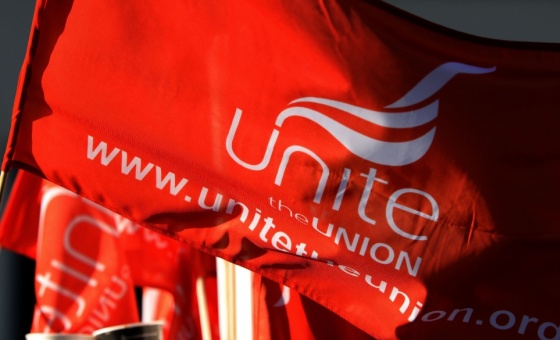This is the last article you can read this month
You can read more article this month
You can read more articles this month
Sorry your limit is up for this month
Reset on:
Please help support the Morning Star by subscribing here
SCOTLAND’S Health Secretary doesn’t hold the easiest of briefs. The previous one, Shona Robison, eventually ceded to calls for her resignation amid a series of NHS scandals and missed targets — the most serious of which covered her own constituency.
Her successor Jeane Freeman was called a “liar” by Labour’s Neil Findlay over the mesh cancer treatment scandal.
After being thrown out of Holyrood’s debating chamber, Findlay charged: “Either she lied about instructing her officials to investigate reintroducing mesh implants or is so incompetent she does not have a clue what is going on inside her own department.”
But she who makes her bed must lie in it — and no-one knows this more than Freeman. For though she came to political prominence as a key non party-affiliated figure in the 2014 independence campaign, she previously served as Labour first minister Jack McConnell’s senior special adviser.
Many SNP ministers have attempted to get off the hook through blaming the legacy of the previous Labour-Lib Dem administrations — but Freeman doesn’t have that luxury.
As well as the revelation that the Scottish government looked at reintroducing the discredited mesh implants, the Health Secretary was in the headlines for another reason this week — the long-running Monklands Hospital saga.
The proposed relocation of the hospital from its current location between Coatbridge and Airdrie has caused quite a stir.
NHS Lanarkshire had pushed for Monklands to be moved five miles away to Gartcosh. Speaking at Holyrood last November, Labour MSP Elaine Smith said the consultation process was “weighted in favour of Gartcosh and involved far more staff and professionals than patients or the public.”
She said “the Gartcosh site was being heavily promoted with the other sites, in particular the current location, being negatively portrayed.”
Now Freeman has called for a new “appraisal process that is supported by the local community,” which will consider alternative sites to both Gartcosh and the other proposed alternative, Glenmavis, a village two miles north of the current hospital.
But crucially, she revealed this week that she has “asked that the option of building on the existing site at Monklands be excluded from the re-evaluation because building a new hospital on an existing site takes longer, costs more and risks infection and other patient safety concerns.”
That’s as may be, but the arguments in favour of the current site — put forward by Smith in that November debate — still stand.
It’s centrally located, with good transport links and many staff living nearby. During the Beast from the East last year, many workers walked into the hospital, minimising disruption to crucial treatment.
Over the years Monklands residents have lost acute medical services such as paediatrics, inpatient dermatology beds, gynaecology and orthopaedics,” Smith said.
“Living in the community, I have no doubt that the people of Monklands are deeply concerned about losing their local hospital provision in the heart of the community.”
The biggest threat of all to Monklands, however, came when in 2006 the McConnell’s administration in Edinburgh — the same one advised by Freeman, though she had left formal Scottish Executive employment by then — proposed closing its A&E unit.
The decision was reversed a year later when the SNP took office, with then health minister Nicola Sturgeon saying NHS Lanarkshire had failed to give enough weight to local people’s concerns. Sound familiar?
The story, unfortunately, was not particularly remarkable. North and south of the border, New Labour governments came under fire from community campaigners for their efforts to “streamline” the NHS — not just through PFI, but with the closure of A&E and maternity units.
Labour, of course, has had a change of management since those days, with both Jeremy Corbyn and Richard Leonard putting clear red water between themselves and the policies of Blair and Brown.
On Thursday, Leonard said ruling out the current site amounted to “nothing short of a betrayal of the local community.”
Freeman, however, appears to have imported a disdain for patients from her New Labour days, along with an assumption that managerial concerns and so-called pragmatism should take priority.
In newspaper profiles, the Health Secretary is regularly described as a “former communist.” Unsurprisingly, she was on the Eurocommunist wing of the CP, which nurtured figures who could move seamlessly into New Labour and even plain neoliberalism.
David Triesman and Charles Clarke, key figures under Blair, were both Eurocommunists. Freeman’s former National Union of Students comrade Sue Slipman joined lottery operator Camelot before moving to work with foundation hospitals.
It’s said that Peter Murrell, SNP chief executive and Sturgeon’s husband, is somewhat obsessed with Philip Gould’s book The Unfinished Revolution — the bible of the Blairites.
Sturgeon’s regime is too clever to go near the most toxic tenets of New Labour, having learned the lesson that a veneer of radicalism is worth clinging onto.
But Freeman is just one example of the managerial mindset that characterises both the present-day SNP and Blair’s Downing Street. The question is whether the shine will wear off any time soon.
 Conrad Landin
Conrad Landin









